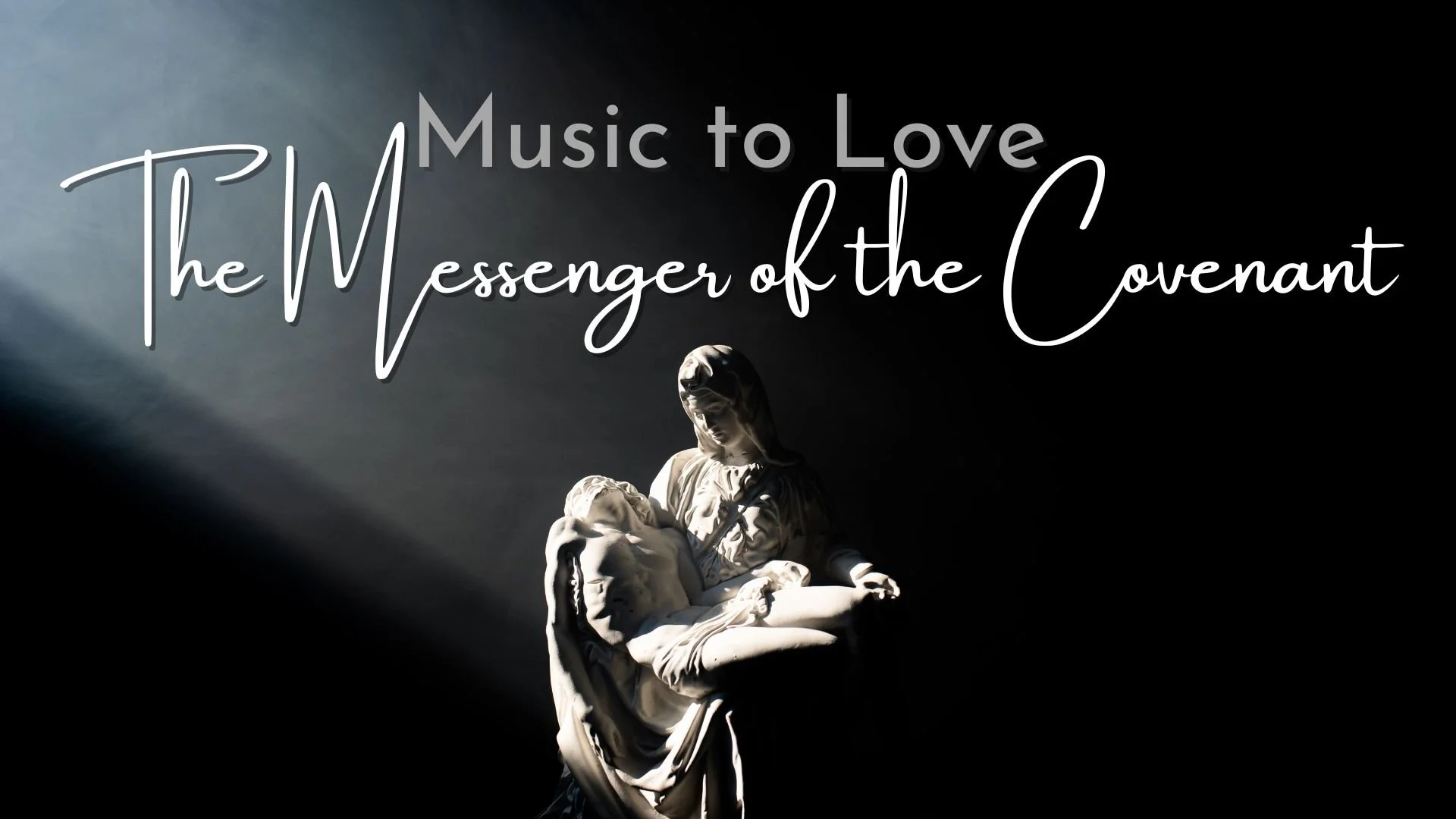Films to Love: Elvis
Here at Whiskers on Kittens, I have written a great deal about the styles of music that I love. Mostly that style stays within the genre of jazz. Sometimes I broaden it to include opera and classical. But on one occasion I highlighted someone who needs no introduction: Elvis Presley, the King of Rock and Roll.
For many, many years, I have been a great fan of Elvis. I’ve visited Graceland and the surrounding museums dedicated to the King several times. I’ve read numerous biographies, first hand accounts, and both of Priscilla Presley’s autobiographies dedicated to that time in her life. I’ve watched innumerable interviews with Elvis and his various bandmates, his live concerts, commemorative concerts, and tribute concerts. I even had my son on January 8th (today), which is Elvis’ birthday. I am a fan.
Through the years, I have watched various film interpretations of Elvis- from minor roles in films like Walk the Line to the mini-series Elvis. While I have enjoyed these movies, I have always felt something lacking, or worse, insincere within the performances.
So, when I heard about the movie Elvis in theaters, I made no attempt to go see it. I figured that it would be another half-hearted approach by some actor to portray a man who was larger than life.
Boy, oh, boy, was I wrong. Thanks to streaming services, I was able to sit down and watch Elvis. First off, I had no idea Baz Luhrman helmed this biopic. I am always appreciative of the unique and creative ways in which Luhrman approaches his topics.
And while the nearly three hour movie is a difficult one to watch, I encourage you to do so for no other reason that to pay homage to the transformative, immersive performance Austin Butler delivers as Elvis.
Butler did not shirk his role. His representation of Elvis was intuitive. He dug deep to reach a primal aspect of himself that would allow for his complete transformation into Elvis. Every movement Elvis made and captured on film was studied and copied with rigorous precision. Nuances of mannerisms, inflections of voice, even those voiceless communications conveyed in a glance were all transposed with such accuracy, you forget you’re watching an actor. That sort of commitment to the craft is rarely seen. In fact, Butler spent eight months in daily training during pre-production to play Elvis. Then the pandemic hit, and he was afforded another year to perfect his performance by painstakingly studying every piece of footage he could get his hands on of Elvis. His performance is the result and you can see the work and time paid off superbly.
The story of Elvis’s life is not an easy one to watch. In many ways, Elvis remained an innocent all his life. What I mean by that is that he was able to retain a childlike trust in people which allowed for unscrupulous persons to take egregious advantage of him. This I already knew. Colonel Tom Parker took wicked advantage of Elvis and his family from a young age and maintained a claw-like hold on the man until his death in 1977, bleeding him dry financially as well as in body and soul. However, that innocence is also a chief reason he is still held so deeply and endearingly within the hearts of those who knew him.
In the film, Parker narrates that Elvis’s love of his fans killed him, exonerating himself from any culpability in the demise of the man. The film lays mountainous blame at the Colonel’s feet, where it does belong. But, I offer that blame for such a tragedy cannot really be laid at anyone’s feet, including Elvis himself.
That is why this film is so beautifully done and has been heralded and acclaimed by the surviving members of the Presley family. It chronicles the faults, foibles, and, even, the greatnesses that conspired to bring about the demise of a legend before his time.
I must say that liberties were indeed taken. A story encompassing as much as this movie does could not be done without liberties. I understand the purpose for some and applaud them as they drive the narrative, but others I do not understand. Below, I address both the great and awful ones while giving a dose of historical context or clarity where I can. I wish to address what I believe are pros and cons here for the purpose of adding further clarity to the character- as recorded through numerous eyes- of Elvis Presley.
Gladys Presley
The most glaring and upsetting untruth portrayed in the film is that of Gladys Presley, Elvis’s beloved mother. The film portrays her rampant anxious condition as leading to a severe bout of alcoholism that ultimately results in her untimely death. I do not understand this. Gladys Presley did suffer from anxiety, which only worsened when Elvis shot to fame. She worried greatly for his safety. I believe it was maternal intuition that kindled within her; she knew the generous and trusting nature of her son, and worried that he would be greatly taken advantage of, which, of course, he was.
From every account I have read or seen regarding Gladys, she was not an alcoholic. She did enjoy her beer, but according to numerous first hand sources who knew Gladys well, she never imbibed of hard liquor. Nor was there ever a trace of it on her breath. While Gladys’s health did decline because of acutely severe hepatitis of the liver, it was a heart attack which ultimately killed her. To his death, Elvis maintained that it was his being drafted into the army that pushed his mother over the edge. The portrayal of his mother in this film would have broken Elvis’s heart. But, don’t take my word for it. Barbara Hearn Smith, Elvis’s longtime girlfriend when he hit the big time, spent many, many days in the company of Gladys. Here’s what she said:
“She did not deserve such treatment [in the film]. Elvis would never forgive anyone who allowed that.”
Russwood Park, Memphis, TN- Charity Concert - July 4, 1956
When Elvis burst on the scene, he created quite a stir. People were furious at his sensuous gyrations on stage, labeling him everything from Elvis the Pelvis to more caustic titles like the Spawn of Satan. The film does a great job of showing how much this weighed on Elvis. However, it gets a little muddied when they show how the Colonel decides to deal with the bad press.
The creation of the ‘new’ Elvis appears contrived and encouraged by the Colonel. In reality, I think it was traditional PR work on the Colonel’s part; he was just trying to do damage control. That’s how Elvis ended up on The Steve Allen Show dressed in a tux with tails singing to a hound dog wearing a top hat.
Now, having moved from New York City to the South, I myself have witnessed first hand the bigotry many northerners retain when it comes to the people born and raised in the South. I can only imagine how much more pronounced that condescension must have been during the time of the Civil Rights Movement. When Elvis showed up in NYC to film The Steve Allen Show, he had no idea he would be put on stage with a hound dog to whom he would sing. The whole experience humiliated him and his bandmates. They returned to Memphis in low spirits only to be faced with riotous press covering everything from how his performance lacked because of the comedic aspect of singing to a dog to the flop that the Elvis transformation was.
The film touches lightly on how the Presley family felt about this performance. Many, including Gladys, felt it was a typical northern slight to take a good southern boy and make a fool of him on live, national television. A testament to Elvis’s childlike sweetness, he maintained that Steve Allen and his team were not trying to humiliate him. But whether it was intentional or not, the shame of that performance hung heavy on Elvis and his band.
Couple that with the fact that Elvis paid no heed to the segregation rules of the day, and would continually go to Beale Street to hang out with the black musicians who provided an atmosphere that felt like home to the King, and the bad press was piling up against this newly budding star.
To Memphians, Elvis was a hometown hero. So, when it was heard that he would be headlining the charity concert for the Cynthia Milk Fund of The Memphis Press-Scimitar and the Variety Club's home for Convalescent Children, fans showed up in the wee hours of the morning in hopes of getting the closest seats. When Elvis arrived in a squad car after the first act, his vehicle was mobbed and he was forced to leave and return just before his number began.
When he stepped foot on that stage before his adoring, loyal public who were largely incensed on his behalf, he knew he had to address the elephant in the room.
The film records his words faithfully:
'You know those people in New York are not going to change me none. I'm going to show you what the real Elvis is like tonight'.
However, the movie takes license here. Great license. First off, Elvis didn’t sing Trouble; he didn’t record the Jerry Lieber and Mike Stoller song until 1958. Furthermore, by picking Trouble as the song Elvis sang after saying those words, it intimates that Elvis himself was looking for trouble, as the lyrics say.
Nothing could be farther from the truth. Much of the bad press Elvis received hurt him deeply. As he often remarked, one of his greatest desires was to sing gospel music in the church alongside such beacons as Mahalia Jackson. So when he was equated to being a tool of Satan and shunned by much of the Bible Belt, it pierced. He carried those wounds throughout his life.
From all the sources I’ve read and watched, I do not believe Elvis was looking for trouble at all. Rather, he was looking for acceptance; acceptance while being himself. His gyrations and movements were intuitive, not gimmicks merely to create a sensation. His was an innate sensuality that could not be suppressed, not an overt seduction as often laid at his door by critics.
Songs performed were his popular hits at the time- 'Heartbreak Hotel', 'I Want You, I Need You, I Love You', 'Blue Suede Shoes', 'Long Tall Sally' and 'Hound Dog’- accompanied with Elvis’s iconic movements. He really let loose at this concert, which the famous pictures show.
When his performance was over, he was escorted off stage, ushered through a corridor of security into a squad car, and driven out of the park. There was no riot or anything even close to something that chaotic. Actually, when Elvis took the stage wearing all black except for a red tie and red socks, pandemonium broke out amongst the crowd. Before starting his set, Elvis asked the audience to return to their seats so that people in the back could have a view of the stage; the audience complied. That was the spirit of the event; not the uproarious, riotous mayhem portrayed in the movie.
Firing the Colonel
The movie does this well. It’s dynamic. It’s dramatic. You applaud Elvis for finally kicking this cur to the curb.
Alas, it did not happen. More’s the pity.
I fully understand why Luhrman went this way. It provides a momentary relief from the heaviness of the film. The Colonel deserved it- from what’s presented in the film. He’s a user and an abuser.
In 1974, Elvis and the Colonel did have a explosive argument which resulted in both parties severing their ties, Elvis never brought that argument on stage, maintaining professionalism and respect for both the Colonel and his audience.
What the film did get right is that the Colonel compiled a comprehensive, exhaustive list of all the itemized things that he purported Elvis owed him. Considering that Colonel had been taking nearly 50% of Elvis’s earnings since they has signed together in 1955, the itemized bill smacks of blackmail as he knew Elvis could not pay it. Ultimately, as shown in the film, Elvis resumes his professional relationship with the Colonel until his death.
Beale Street
When it comes to the Civil Rights Movement, we know the iconic names that fought for racial justice- Martin Luther King, Jr., Malcolm X, Rosa Parks, Bobby Kennedy, even Louis Armstrong. One name we don’t hear often is Elvis Presley. The reason for this, I believe, is because Elvis wasn’t trying to protest or make a statement; he was just being himself.
Elvis was raised, for all intents and purposes, in the ghetto of Memphis after his indigent birth in Tupelo, Mississippi. In the neighborhood where he grew up, there were the undesirables- the blacks, the Jews, the white trash. However, this poor upbringing exposed Elvis to the Negro spirituals which ultimately created the gospel sound and birthed the rhythm and blues. This music was foundational in Elvis life. While fried peanut butter and banana sandwiches might have been the comfort food that fed Elvis’s body, this music was the comfort food that fed his soul.
Elvis was at home, comfortable, and welcomed in the black community.
That is why I appreciated the several instances (in the film) when Elvis felt overwhelmed in his life and career, he would slip away to Beale Street and hang out all day and all night with the likes of B.B. King, Little Richard, Fats Domino, Big Mama Thornton, Mahalia Jackson, et. al. Juxtaposing the upheaval of his personal and professional life with the ease he experienced immersed in the black cultural is true to life.
Throughout his life and career, Elvis maintained and demonstrated the high regard in which he held the black community. Not one given to making political or cultural statements, Elvis demonstrated his beliefs through his actions, whether placing well spoken and influential words for friends to open doors ordinarily closed to them or offering them opportunities of exposure by giving them a highlighted presence on stage with him. To this day, Elvis is still loved and appreciated by the black artists he worked with and knew during his life.
Generosity
When watching the Vegas concerts and the 15 city tours that Elvis did in the last ten years of his life, we are all familiar with the over the top jumpsuits and musical productions. Elvis was over the top. It was a part of his personality.
When it came to generosity, Elvis was excessive. It was not only his friends and family that benefited from his generosity, it was perfect strangers, too. As attested too many times throughout his life and even more since his death, Elvis loved to see people happy.
As the film shows well, Elvis’s chief reason for wanting to be successful was so he could take care of his father and mother. Born in destitution, seeing the personal struggles of his parents, including his father’s imprisonment due to a bounced check, Elvis determined in his youth the he would somehow make a way to take care of his parents for life. That’s why he bought Graceland- to give his parents a home. When Gladys died and his father remarried two years later, Elvis built a home on Graceland’s property for his dad and new wife.
Numerous bandmates were given homes and cars from Elvis. Even if they left the band, Elvis didn’t take back the gift. He wanted them to be happy.
When Elvis entered the army in 1958, he wanted to be viewed as a fellow officer. The men who he served with attested to this desire, but also spoke about Elvis’s generous nature. All his Army pay he donated to charity. He bought all the men in his outfit an extra set of fatigues. And he purchased TVs for the base.
In 1964, Elvis purchased the FDR Presidential Yacht and donated it to St. Jude’s Children’s Research Hospital, who raised $55,000 dollars when they auctioned it off.
In 1968, Elvis auctioned off his Rolls Royce to raise money for mentally handicapped children.
In 1973, Elvis gave away millions of dollars throughout his life. His groundbreaking Aloha from Hawaii concert via satellite raised $75,000 for cancer research.
In 1975, Elvis returned to his home state of Mississippi where he performed a charity concert in Jackson to raise funds for the victims who had survived the devastation of a tornado outbreak.
There are countless other examples and instances of Elvis’s generosity. The man lived large, yes, but he gave large, too.
Elvis’s Faith
Any attempt to show the life of Elvis without showing his deep, profound belief in Jesus is not a true hearted attempt. Even in the film, there is no shying away from how important Elvis’s love of Jesus was to him.
As I wrote before, one of Elvis’s dreams was to sing gospel in the church. Largely rejected by the many religious churches and denominations, he was left with little resort but to simply record the spirituals and hymns that touched his heart.
The album, How Great Thou Art, was the only album for which Elvis received a Grammy.
However, it was not only to the worship which Elvis was drawn. Elvis had a deep and abiding belief in Jesus as his personal savior. And he did not shy away from sharing about it.
At one concert, several fans stood up in the arena and held up a sign that said ‘Elvis is King.’ Elvis stopped the song, thanked the fans, and asked them to sit down because he was not king; ‘Jesus is King,’ he said.
In the 1970s, while Elvis and his band were in Vegas, one of the singers in The Sweet Inspirations, Sylvia Shemwell, felt sick. She went to the hospital and when she returned to practice, she was really shaken up. The next night, when they came together to rehearse again, she was still shaken and teary. Elvis came into the room and saw her and asked her what was wrong.
Sylvia told the group that she had gone to the hospital and been diagnosed with advanced stage stomach cancer, given a prognosis of six months left to live. The doctor told her to get house in order.
Shaken by the news, Elvis sank to his knees in front of Sylvia, put his hand on her stomach, and prayed, ‘Jesus, take the cancer away.’
Estelle Brown, another Sweet Inspiration, witnessed this. According to Brown, Elvis prayed with complete sincerity and belief that Sylvia Shemwell would have a miracle.
When Sylvia Shemwell went back to the hospital, there wasn’t a trace of cancer in her body. She continued performing with the Sweet Inspirations until 2001 when she suffered a stroke which required her to stop touring with the group. She passed away in 2010 of natural causes.
Sylvia Shemwell, Estelle Brown, Cissy Houston, and Myrna Smith (Sweet Inspirations) all maintained that Elvis’s prayer brought about Sylvia’s healing.
Many of the groups that Elvis brought on tour with him were gospel groups such a J.D. Sumner and the Stamps, the Jordanaires, the Sweet Inspirations, and the Imperials. These gospel groups provided the foundation of much of his music. Often, when the concert was over, it was not uncommon for Elvis to invite everyone back to his room and continue with gospel sessions long into the wee hours. It was when he was happiest.
Thankfully, the movie does touches on this in a pivotal way. Elvis shows a young Elvis being swept up into the Spirit at a tent revival and how that transformative experience was for Elvis Presley.
The way I look at Baz Luhrman’s Elvis is how I approach certain masterpieces found within the finest museums of the world. They have earned their right to be in such a place of honor. They deserve it. But those masterpieces are not ones that I would want in my home to look at everyday. Rather, they are pieces that should be in museums for the purpose of highlighting their importance to Art.
Elvis is not a light film. It is not an easy film. It’s actually one that I don’t see myself watching again. However, it is a worthwhile film. One that should be watched and appreciated for what it is doing.
Firstly, it is paying homage to the legendary stature of Elvis Presley, to the lasting domino effect his music and persona had upon the culture and the world at large. We are taken on the journey of Elvis’s career and life to see the transformation of a boy with grand dreams into a man who is largely disillusioned by the course of his career. We also see the capriciousness of a voracious media (some things never change) that made fodder of Elvis’s foibles, but did very little to expose the medical clutches Elvis has fallen into in the form of Dr. George C. “Nick” Nichopoulous. In fact, it was not until the 1990s that the Tennessee Medical Board revoked his license because of over-prescription. Like many impressionable people, Elvis did not question the word of Dr. Nick. If he prescribed something, Elvis took it. This produced a drug addiction/dependency so acute that in the first eight months of 1977 (the year of Elvis’ death), more then 10,000 doses of sedatives, narcotics, and amphetamines were prescribed to Elvis and administered by Dr. Nick. Furthermore, the managerial abuse Elvis suffered under the Colonel was well known within the industry, yet not on single journalist decided to investigate and expose it. Given the shadiness of the Colonel’s past, there was tons of fodder for a good story there. But, like so many journalistic enterprises, it was easier to make fun of Elvis as he gained weight and descended further and further into drug addiction.
Secondly, the film provides an avenue to expose the insidious machinations of Colonel Tom Parker. While his actions may not have been as overtly sinister as portrayed in the film, the Colonel’s impetus was not Elvis’s personal benefit, but his own personal gain off of Elvis’s generous nature, mega talent, and childlike trust. Tom Hanks’ performance as the shady Colonel is exceptional. From the moment he utters his first word, your skin crawls. Yet, he is a king of the snow job. You see clearly how he could lure Elvis and his family into his clutches and then play on their gentle natures to remain there.
Lastly, while Elvis Presley is a world known icon, much of his story has been lost in tabloid gossip. People know he died because of prescription drug abuse. They remember his gaining weight and bloating horridly in the last years of his life. They make fun of the fandango jumpsuits and over the top performances. They smile and sing along with his ground breaking recordings. Elvis is remembered. But so much of the behind the scenes struggles are unknown. This film, helmed by a master storyteller and acted by tour de force performers, is the story that needs to be told. Not to sensationalize a life, but provide context, understanding, and compassion to a man. Not a legend. Not a king. But a man.
If you have not seen this film yet, carve out some time to do so. It is worthwhile. If you have seen it, what did you think?




























































